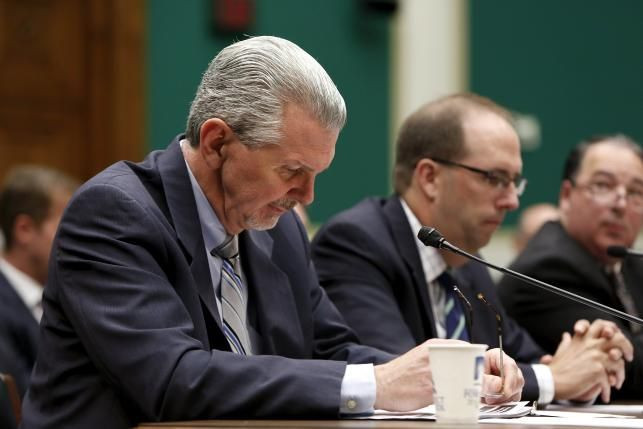Owners May Need To Have Takata Air Bags Repaired More Than Once

The top U.S. auto safety regulator said that replacement parts for potentially defective Takata Corp air bag inflators may not offer consumers a remedy that lasts the life of the car.
Many cars equipped with older Takata air bag systems could have to be fixed more than once, said Mark Rosekind, head of the National Highway Traffic Safety Administration.
He told a House subcommittee on Tuesday that his agency is still sifting through more than 2.4 million pages of documents from Takata, and has not determined why some of Takata's air bag inflators explode.
As a result, Rosekind said, parts being produced to fix more than 30 million vehicles included in a recall NHTSA ordered last month may themselves have to be replaced. Air bag inflators already installed on more than 2 million U.S. cars to replace potentially defective Takata Corp air bags may not last for the life of the vehicles, he said.
"Your dealer should be able to tell you if (the replacement part) is an interim remedy or a long-term fix," Rosekind said.
The House Commerce and Energy subcommittee on commerce, manufacturing and trade is investigating problems with Takata air bags that have been linked to six deaths and one of the largest consumer product recalls in U.S. history.
Lawmakers repeatedly asked when owners of affected vehicles, which could number as many as 34 million in the United States, can be sure that their air bags are safe.
Because of the size and scope of the recall, which now covers about 13 percent of U.S. cars on the road, "a replacement part may not be immediately available" for some owners, Rosekind acknowledged.
Lawmakers wanted to know if those replacement parts are different enough from the original parts that they will not experience similar defects over time.
Rosekind in turn urged support for the proposed Grow America Act, which would give NHTSA more budget and greater oversight over safety defects, and would raise the maximum penalty that NHTSA could levy on car companies and suppliers to $300 million from $35 million.
Rosekind said NHTSA plans a public hearing this fall on the Takata air bag issues.
Those issues have taken on increasing urgency this year as Takata has continued to expand the list of potentially defective air bags.
The inflators in those air bags are prone to rupture and send shrapnel into vehicle occupants. They have been linked to hundreds of injuries, according to NHTSA.
Ten passenger-car manufacturers since 2008 have announced recalls involving ruptured inflators in Takata air bags, and their dealers have been replacing the affected parts as they have become available from the company and, more recently, other suppliers.
Takata last month said certain air bags that already have been repaired may need to have parts replaced again.
Another complication is that the recall involves both driver- and passenger-side air bags. Neither Takata nor NHTSA can say how many vehicles in total may be affected or how much overlap there may be.
Because a defect exists in both types of air bags, it means "we need two replacement inflators (and) the owner probably needs to make two trips to the dealer," NHTSA said Tuesday.
The House subcommittee is slated to hear testimony from Takata executive Kevin Kennedy and representatives of two vehicle manufacturer trade groups. Also scheduled to appear is David Kelly, a former NHTSA acting administrator who was hired to lead an independent investigation by a coalition of the 10 automakers using Takata air bags.
© Copyright IBTimes 2024. All rights reserved.





















